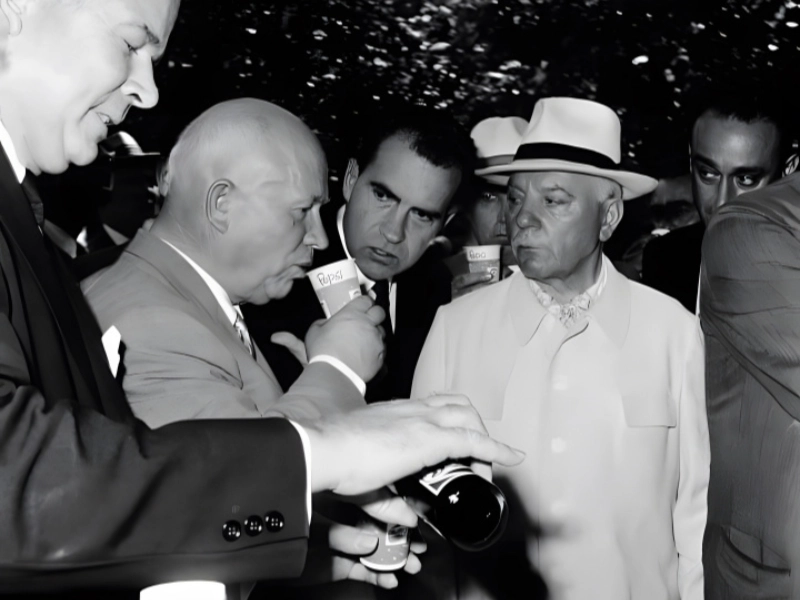Exploring Modern Russia: A Photo Journey Through Everyday Life
Advertisement
2. Sharing a Bottle of Pepsi

Advertisement
When Vice President Richard Nixon set out a diplomatic trip to the Soviet Union to meet with Premier Nikita Khrushchev, 1959 represented a turning point in Cold War history. More than merely a formal diplomatic exchange, this visit—which occurred during the height of tensions between the United States and the Soviet Union—became a turning point in political and cultural history, preserved as the "Kitchen Debate."
Named after part of it occurring in a model American kitchen at the American National Exhibition in Moscow, The Kitchen Debate was a series of spontaneous conversations between Nixon and Khrushchev. Viewed and aired to millions of people in both nations, these debates covered a broad spectrum of subjects from technological developments to ideological contrasts between capitalism and communism. The argument gave a rare window into the human relationships between leaders of the two superpowers and a moment of relatability in an ordinarily hostile geopolitical environment.
When Nixon and Khrushchev shared a Pepsi bottle, one of the most unforgettable and humanising events of this visit was Even with great ideological differences, this small deed of two world leaders savouring a soft drink together became a compelling emblem of possible cooperation and common humanity. Audiences on both sides of the Iron Curtain found great resonance in the picture of these two men, representatives of different world points of view, sharing a shared consumer good.
Soft drinks were new in the Soviet Union at the time of this momentous conference. For Soviet people, the idea of carbonated beverages as we know them now was essentially alien. Though a familiar brand in the United States, Pepsi was not the worldwide behemoth it is now. Coca-Cola was actually the major player in the global soft drink market at that period. Pepsi's selection for this diplomatic occasion will have long-lasting effects on the company's destiny.
For Pepsi, the exposure this well-publicized event proved to be a turning point. It made it possible for the business to penetrate the Soviet market, an action inconceivable a few years ago. Pepsi started a major commercial engagement with the Soviet Union in 1972 when it became the first Western good offered there.
Pepsi's footprint in Russia became rather noticeable throughout the years following the Kitchen Debate. Pepsi's hold in Russia grew when the Soviet Union fell apart and Russia turned to a market economy. With about 8% of Pepsi's total sales today, Russia now ranks as the second biggest market worldwide. This amazing development from a single shared bottle to a big market presence emphasises the long-term influence of that event in 1959.
The Pepsi narrative in Russia offers an interesting case study on how diplomatic gestures and cultural interactions could have far-reaching financial effects. It shows the effectiveness of soft diplomacy and how apparently little events could cause major changes in global commerce and cross-cultural communication. Furthermore underlined is the intricate interaction among politics, culture, and business in forming world relations.
Examining this historic event helps us to appreciate how similar interactions still influence world affairs now. Although the geopolitical scene has changed drastically since 1959, the ability of common experiences and cultural interaction to promote understanding between countries is still as important as it was. Even in the most unexpected of situations, the small gesture of distributing a Pepsi bottle during a contentious diplomatic encounter reminds us of our shared humanity and the possibility for finding common ground.
Advertisement
You May Like

